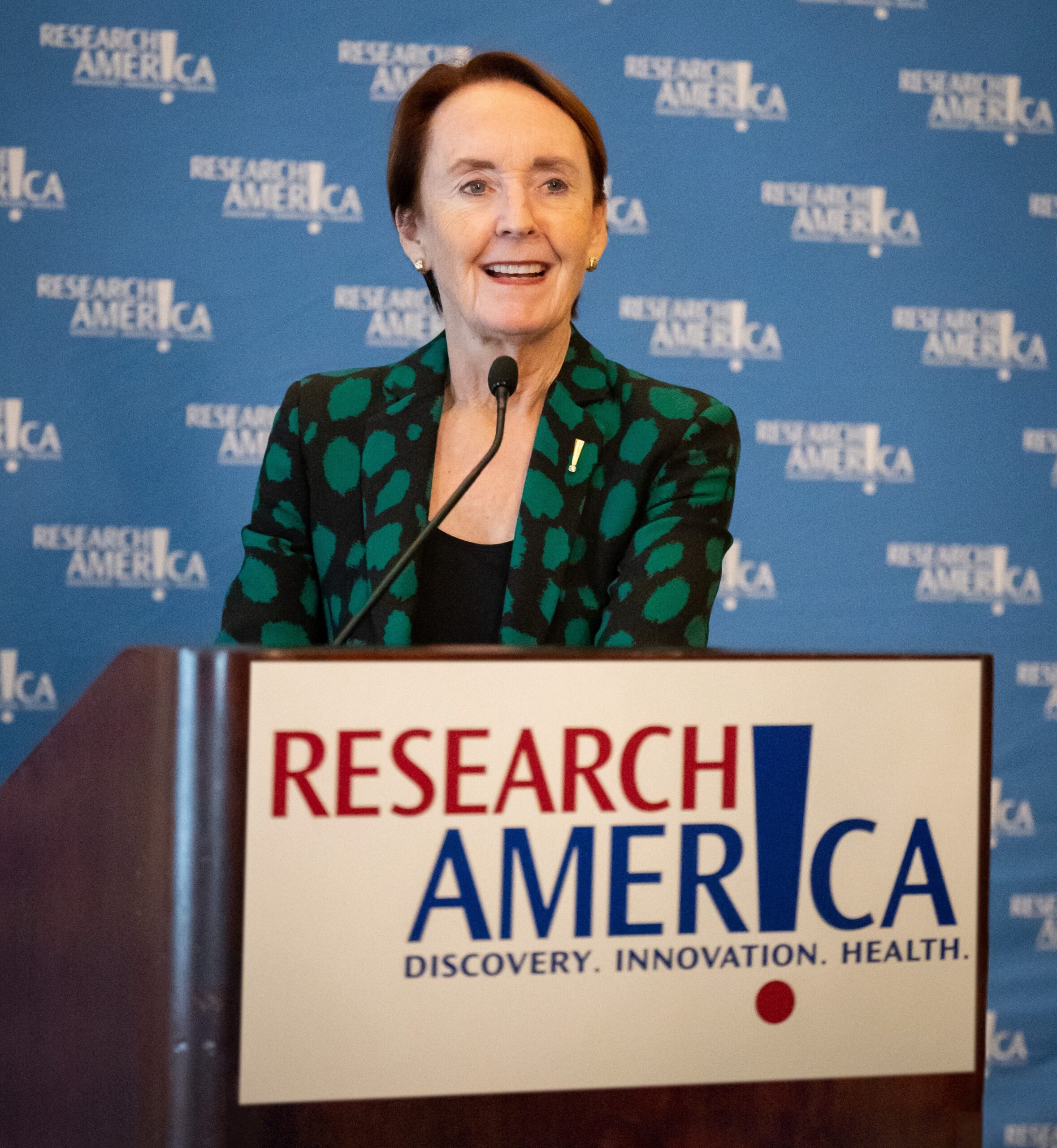Leading the Conversation

“Science is a human enterprise. It matters who asks the questions. It matters who interprets the results. It matters who tells the stories.” This powerful statement opens a comment article in Nature Neuroscience authored by Research!America board member, Dr. Kafui Dzirasa, and colleagues Dr. Gwenaëlle Thomas and Dr. Alvin Hathaway Sr. Their commentary accompanies the groundbreaking first set of findings of the African Ancestry Neuroscience Research Initiative aimed at addressing the enormous gap in our understanding of brain health. Learn more about their transformative approach to research in an NPR interview aired yesterday.
Leading the Conversation: Today, the online news organization Salon published my op-ed on the urgent need for the U.S. to develop a comprehensive plan to prepare for, fight, and prevent dengue fever and other neglected tropical diseases before these diseases establish an even larger footprint. See our new fact sheet on dengue. To learn more about Valley Fever, which I also address in the Salon piece, checkout the co-hosted NIH, FDA, and CDC August workshop about the search for a vaccine.
On The Hill: Bills including FY25 funding for NIH, NSF, and FDA will be marked-up by the House Appropriations subcommittees and full committee starting in June (the mark-up schedule is here). As I noted last week, the House Appropriations Committee is proposing deep cuts to most non-defense discretionary agencies and programs, with losses that average 6% for all subcommittees and 10-11% for the Labor-HHS Subcommittee. As a reminder, the Labor-HHS bill allocates funding to NIH, CDC, ARPA-H, and BARDA, among other critical agencies and programs.
Don’t make the mistake of thinking these declared cuts are somehow not real or won’t stand. If members of Congress don’t hear from their constituents and constituent organizations that research funding is critical, that funding becomes all the more vulnerable. Thus, two requests for you this week: 1) Use this action alert yourself; and 2) share the alert with your networks by reposting our LinkedIn and/or Twitter/X messages. Your individual voice matters – and so does the number of voices!
In addition, you still have (a little) time to submit outside witness testimony to the Senate Labor-HHS Subcommittee: the deadline is COB tomorrow, May 24, and instructions can be found here. Need a template? Use our testimony. For inspiration, take a moment to read the compelling patient stories United for Medical Research has compiled in their newest fact sheet.
Tackling Sepsis, a Public Health Threat: Sepsis, a life-threatening emergency, affects a staggering 1.7 million people in the U.S.; tragically, 350,000 people who develop sepsis during their hospitalization die or are transferred to hospice. Join us this Wednesday, May 29, at noon ET, for a discussion with Thomas Heymann, President and CEO of Sepsis Alliance, and Dr. Mallory Perry-Eaddy, Assistant Professor at the University of Connecticut School of Nursing, about this lethal health threat and the role of research and advocacy in ending it. Register today.
Give Science a Like on Social Media: The Science and Technology Action Committee (STAC), of which I am a co-founder and co-chair, is conducting an eight-week digital campaign highlighting four key challenges identified in the State of Science in America report. Through a series of blog posts and social media ads, STAC is bringing attention to the urgent need to take steps to raise awareness and support for retaining our ability to compete with China, putting artificial intelligence to work productively, assuring a strong STEM workforce, and improving K-12 STEM education. Read the latest post. See the ads and help amplify STAC’s LinkedIn and Twitter/X messages.
March In and More: If you are with a Research!America alliance member organization, join us for a virtual, off-the-record roundtable discussion on Friday, June 14, at 11 a.m. ET, focused on recent developments related to the National Institute of Standards and Technology-issued Bayh-Dole “march-in” framework, as well as a new NIH request for information on requiring access plans in conjunction with certain technology transfer agreements, and other technology transfer-relevant issues. If you are interested in participating and are a member organization, please use this form to register or email Erin Darbouze.
Send in Your Nominations Now! We are roughly a week away from the Friday, May 31, deadline to submit nominations for Research!America’s 2025 Advocacy Awards! Help us identify individuals and organizations whose commitment to advocacy for research and innovation has advanced medical, public health, and scientific progress in profoundly important ways. Take a look at the award descriptions and submit your nominations now! (It’s not an onerous process, I assure you!)
Sign Up Today for the Early Career Researcher Summit: Our fourth annual Reaching the Peak: A Science & Technology Early Career Researcher Summit Series is coming up fast. This popular series of free, virtual programs held once each week in June enables early career researchers to explore an array of career paths, network with fellow researchers, participate in professional development workshops on science communication and science policy and advocacy, hear from distinguished leaders, and engage in meaningful discussions around research funding and policy issues. Secure your spot today!




